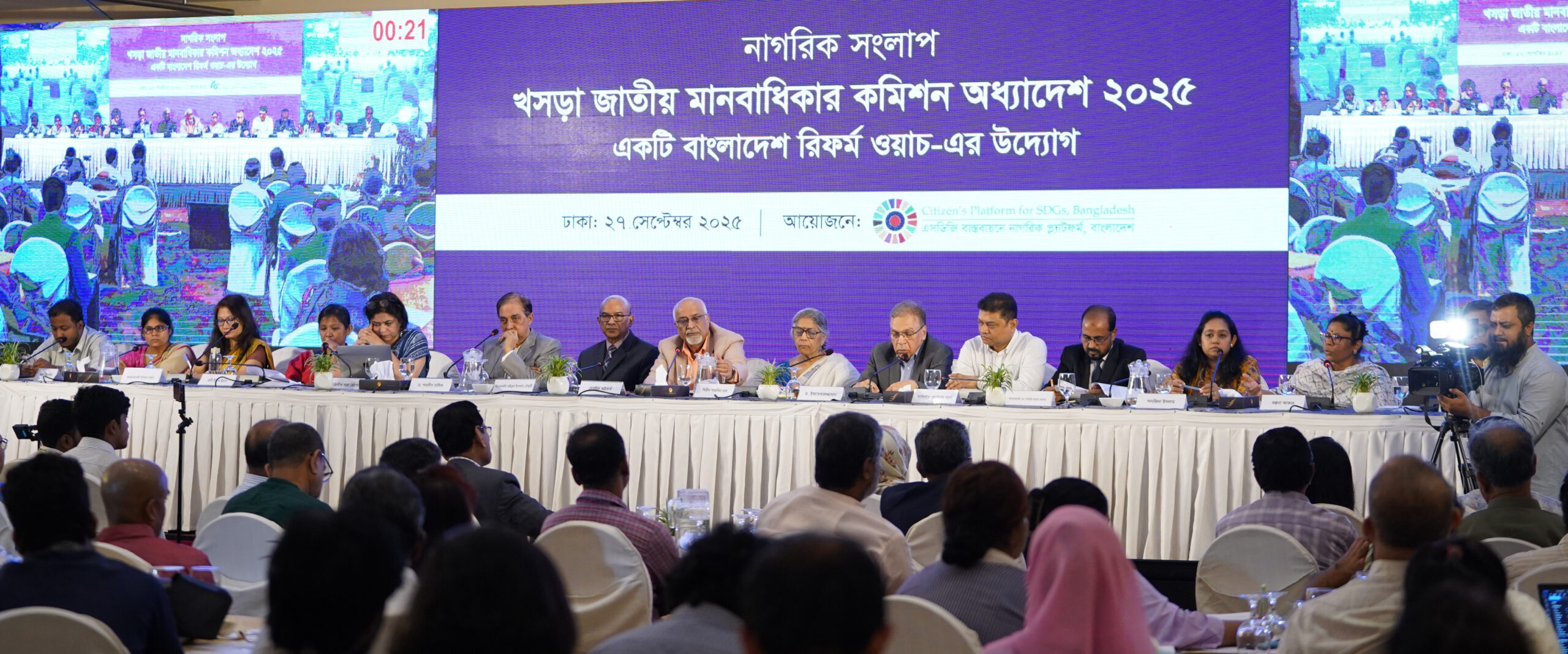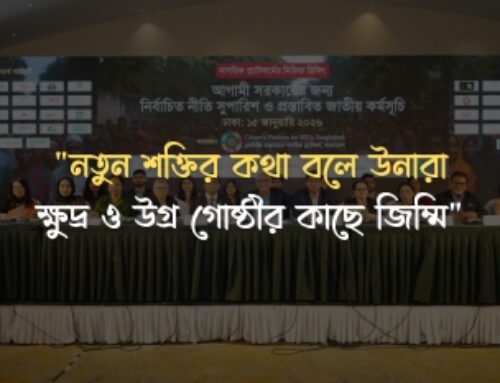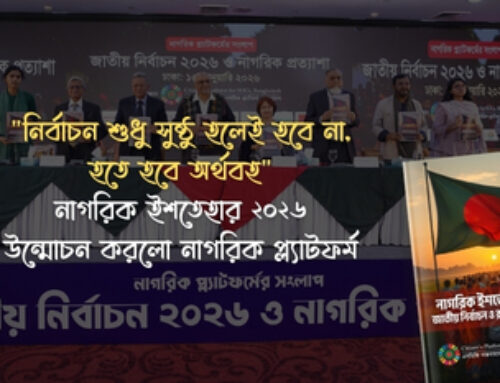
On September 27, 2025, the Citizens’ Platform for SDGs, Bangladesh, under its ongoing initiative titled “Bangladesh Reform Watch”, convened a Multi-Stakeholder Discussion on the Draft National Human Rights Commission (NHRC) Ordinance 2025. The event is about a citizen-driven initiative to solicit and consolidate a set of diverse stakeholder perspectives, with particular attention to CSO inputs, on the draft Ordinance. The discussions stressed the need to consolidate and concretise Bangladesh’s Draft National Human Rights Commission (NHRC) Ordinance 2025 as an inclusive framework addressing the needs of all groups. They also emphasised ensuring that the Commission and its mandate are overseen by the rightful authority so it can effectively protect human rights.
Dr Debapriya Bhattacharya, Convenor, Citizens’ Platform and Distinguished Fellow, Centre for Policy Dialogue (CPD), moderated the event by providing an overview of the National Human Rights Commission (NHRC), tracing its history since its establishment in 2007 during the tenure of Fakhruddin Ahmed, who served as Chief Adviser of Bangladesh’s caretaker government (2007–2008). He highlighted three key aspects of the discussion: whether the new draft of the Commission offers any meaningful innovations, how effective the Commission is likely to be according to international standards in fulfilling its mandate, and the close interconnection between the Commission’s work, political practices, the rights of citizens, and marginalised communities, which requires careful attention. He further emphasised that the aim is not merely to establish another ineffective human rights body, nor to appoint ineligible individuals to positions of authority within the Commission.
Barrister Jyotirmoy Barua, Advocate of the Bangladesh Supreme Court, noted that it is not mandatory for the Human Rights Commission to be chaired by a Supreme Court judge and stressed learning from past mistakes and regional successes.
Ms Kalpona Akter, Member of the Women’s Affairs Reform Commission and president of Bangladesh Garment and Industrial Workers Federation, highlighted that despite over seven crore workers in Bangladesh, their rights are absent in the draft ordinance, and those falsely charged for protesting receive no compensation even when cleared.
Mr Khandaker Jahurul Alam, Executive Director of Centre for Services and Information on Disability (CSID), noted that the commission’s past efforts for persons with disabilities have been largely unsuccessful and expressed concern over the use of the term “people with special needs,” which he considers offensive, especially for children.
Advocate Susmita Chakma, Human Rights Activist and Board Member of the Board of Trustees at Transparency International Bangladesh (TIB), welcomed the draft’s call for action on both actual and anticipated human rights violations but expressed scepticism that conciliation can deliver justice once a violation has occurred.
Ms Rani Yan Yan, Advisor of Chakma Circle and Indigenous Peoples’ Human Rights Defender, stressed that all government bodies should be accountable to the Human Rights Commission. She noted reluctance to report crimes involving defence forces in the Chittagong Hill Tracts and suggested making reported crimes public, with victims’ consent, to ensure transparent case tracking.
Dr Iftekharuzzaman, Chair of the Anti-Corruption Commission, Executive Director of Transparency International Bangladesh (TIB), and Core Group Member of the Citizens’ Platform, stated that the commission should have the right to investigate any defence force establishment for human rights violations. He also recommended publishing at least two annual reports to ensure transparency.
Advocate Md Matiur Rahman Akanda, Bangladesh Supreme Court, noted that it took nearly 30 years and a non-elected government in 2008 to establish the Human Rights Commission. He argued that if the Commission views the Constitution as its strongest mandate, it can take affirmative action and should be given authority to ensure victim compensation.
Justice Moyeenul Islam Chowdhury, Chairman of the Inquiry Commission on Enforced Disappearances, raised the question of defining human rights and distinguishing them from fundamental rights. From a judicial perspective, he argued that the National Human Rights Commission Act 2009 is a flawed law.
Ms Sanjida Islam, Coordinator of Mayer Daak, stated that the commission’s investigations have largely been fruitless and that it was inactive during the July movement when the country needed it most. She also questioned the sufficiency of the commission’s manpower and its female representation.
Barrister Sara Hossain, Executive Director of Bangladesh Legal Aid and Services Trust (BLAST), highlighted that complaints submitted to the commission are often ignored, accountability remains low, and cases filed are rarely resolved.
Ms Shireen Parveen Haque, Lead of Women’s Affairs Reform Commission, and a founding member of Naripokkho, suggested that many issues could be addressed through ordinances by the commission. She also noted that the draft makes no mention of a stated action plan for the commission.
Ms Nadira Yeasmin, Women’s rights activist and Editor of Nari Angan highlighted that the proposed draft should increase women’s representation in the commission. She added that the draft should be consolidated to better address women’s rights and gender inequalities in its scoping.
Mr Mosfiqur Rahman Johan, Joint Convenor of the National Citizen Party, pointed out issues in the draft concerning human rights violations, partisan approaches, and its links to political parties.
Dr Shahdeen Malik, Advocate of the Bangladesh Supreme Court, Eminent Jurist, Constitutional Expert, and Member of the CPD Board of Trustees, criticised the commission’s advisory function as being relatively limited. He emphasised that factors beyond an individual’s control (e.g., age) should not determine eligibility to vote in elections.
In the open-floor discussion, participants highlighted the need to eliminate misuse of language, address conflicts of interest, ensure youth inclusion, secure the commission’s financial independence, and bring the transgender bill under its mandate. They also debated whether the commission could act when the state fails to address a human rights issue.





Leave A Comment